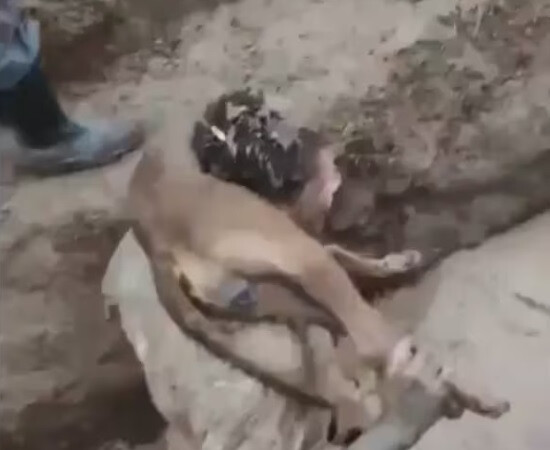
Amidst the widespread shift to non-face-to-face classes due to the COVID-19 pandemic, criticism is mounting against some universities for allowing freshmen "initiation ceremonies" to go too far. Recently, shocking allegations have surfaced that new veterinary students at a university in Paraguay sacrificed a stray dog during an entrance "initiation ceremony," leading local animal protection authorities to launch a full investigation.
The claim that new students at the School of Veterinary Medicine at the Catholic University of Coronel Oviedo in Paraguay killed a stray dog during an "initiation ceremony" they hosted has sparked widespread outrage in the local community. The incident was reported by local media on June 12, 2025, and quickly spread across social media, igniting a firestorm of criticism.
Animal Protection Directorate Launches Immediate Investigation and Requests Autopsy
Federico Decoud, head of Paraguay's Directorate of Animal Protection (Dirección de Defensa Animal), announced that an immediate investigation into the incident has begun. Decoud stated in an interview with 650 AM, "Yesterday (June 11), we received this news and immediately dispatched a technical team of veterinarians to the scene. We have requested to be provided with the animal's remains for an autopsy."
The core of the suspicion is whether the dog died naturally from illness or was actually sacrificed as part of the freshmen's "initiation" ritual. Decoud emphasized, "A forensic autopsy will provide extensive information on when and how the animal died, and whether it died of illness or was actually sacrificed as part of the ritual." The autopsy results will be submitted as evidence to the prosecutor's office, and if death due to animal cruelty is confirmed, it will be subject to public criminal prosecution under current law.
The Animal Protection Directorate stated that it would initiate judicial procedures even without a formal complaint from a third party. Decoud firmly declared, "We have the key to opening the investigation. If no one files a complaint, we will file it ourselves and hand over all the evidence we have to the prosecutor's office." This demonstrates the strong commitment of the Animal Protection Directorate to animal cruelty cases.
Social Outrage Over Unethical Conduct of Veterinary Students
This incident has caused even greater shock, particularly because it involves veterinary students who are expected to protect and treat animal health in the future. On social media, voices of condemnation are pouring in, with comments like, "How can students who are supposed to learn animal protection participate in such cruel acts?" and "This is clear animal cruelty, and strong punishment is needed."
Decoud also criticized the incident, stating, "We are entirely against this kind of act. We cannot understand how veterinary students can be involved in the death of an animal," and emphasized that this incident goes against the fundamental values of veterinary education.
University Expresses Regret While Seemingly Avoiding Responsibility
Meanwhile, the Catholic University of Coronel Oviedo, where the incident occurred, expressed regret over the incident while seemingly trying to avoid responsibility. In an official statement, the university stated that "acts of animal cruelty are absolutely contrary to the values promoted on campus and are reprehensible." However, it emphasized that the incident "occurred outside the campus," implying a lack of direct responsibility on the school's part.
Despite the university's statement, criticism is growing that the students' unethical conduct is not unrelated to the school's lax management or lack of education. The continued existence of outdated practices like freshmen "initiation ceremonies" and the potential for unethical acts to occur during them demand a responsible stance from the university authorities.
Animal Cruelty Punishment in Paraguay and Future Outlook
In Paraguay, a law strengthening animal cruelty penalties has been in effect since 2017. Under this law, animal cruelty can be punished with up to two years of imprisonment and a fine. In cases of severe cruelty leading to the animal's death, even stronger penalties are possible.
This incident is expected to serve as an important catalyst in raising awareness of animal cruelty in Paraguayan society. All eyes are on whether the truth will be fully uncovered through the active investigation by the Animal Protection Directorate and the prosecutor's office, and whether appropriate punishment will be meted out to those involved. Furthermore, this incident is expected to highlight the need for a comprehensive review of the "initiation ceremony" culture within universities and the strengthening of animal ethics education. The unethical acts of aspiring veterinarians, who should respect and protect animal life, will be remembered as a tragic incident that must never happen again.
[Copyright (c) Global Economic Times. All Rights Reserved.]






























